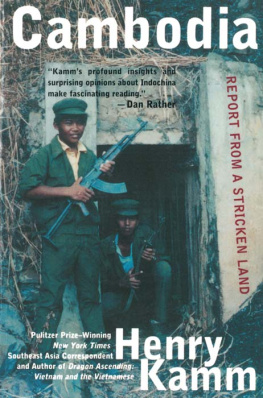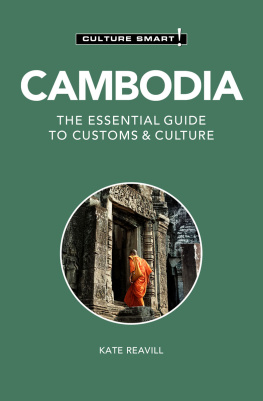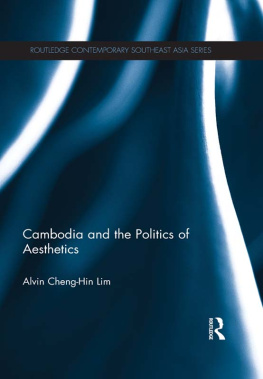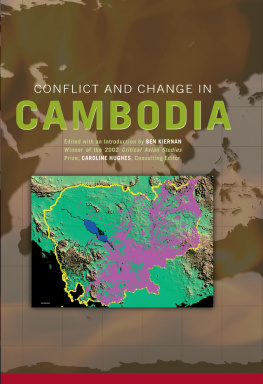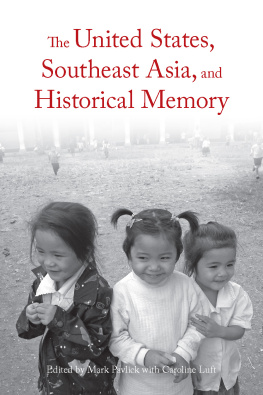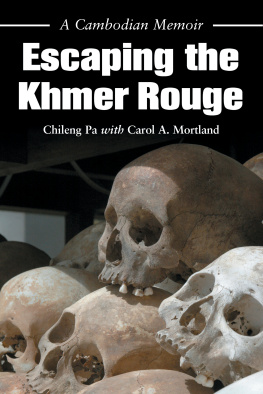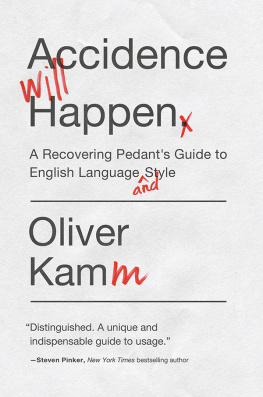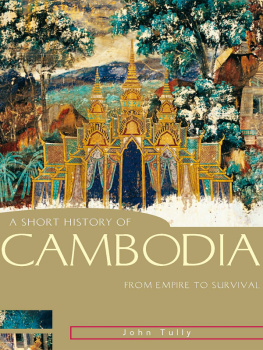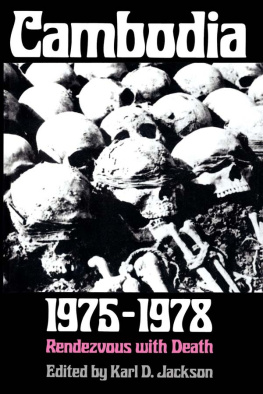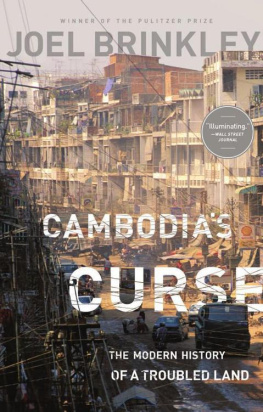Copyright 1998, 2011 by Henry Kamm
All Rights Reserved. No part of this book may be reproduced in any manner without the express written consent of the publisher, except in the case of brief excerpts in critical reviews or articles. All inquiries should be addressed to Arcade Publishing, 307 West 36th Street, 11th Floor, New York, NY 10018.
Arcade Publishing books may be purchased in bulk at special discounts for sales promotion, corporate gifts, fund-raising, or educational purposes. Special editions can also be created to specifications. For details, contact the Special Sales Department, Arcade Publishing, 307 West 36th Street, 11th Floor, New York, NY 10018 or arcade@skyhorsepublishing.com.
Arcade Publishing is a registered trademark of Skyhorse Publishing, Inc., a Delaware corporation.
Visit our website at www.arcadepub.com.
10 9 8 7 6 5 4 3 2 1
Library of Congress Cataloging-in-Publication Data is available on file.
ISBN: 978-1-61145-584-7
ALSO BY HENRY KAMM
Dragon Ascending: Vietnam and the Vietnamese
For my Children,
Alison, Thomas, and Nicholas,
and Theirs
Contents
1 HOPE IS FORTHE UNBORN
1998
2 BRIEF GREATNESS, A DECLINE WITHOUT END
From the Beginnings until 1970
3 TRIPPING INTO DISASTER,
1970
4 THE PRINCE ANDTHE CHAUFFEUR
1964 and 1970
5 DRESSING UP FOR WAR
1970
6 CANNON FODDER
1970
7 MURDER OFTHE SCAPEGOATS
1970
8 A REPUBLIC STITCHEDTOGETHER
1970
9 THE MYSTICAL MARSHAL
1970-1975
10 THE PRICE OF TRUSTING AMERICA
1970-1975
11 THE CAMBODIAN NO LONGER EXISTS
1975-1979
12 THE GENOCIDE AND ITS PERPETRATORS
1975-2979
13 A WAR LEFT UNFINISHED
1979
14 MEETING THE MURDERERS
1979
15 LIFE STARTING ANEW
I979-1980
16 BELOWTHE LEVEL REQUIRED BYTHEIRTASK
1980-1987
17 ENTER THE UNITED NATIONS
1991-1992
18 ELECTIONS INSTEAD OF RECONCILIATION
1992-1993
19 CHEATING THE VOTERS
1993
20 BACK TO SQUARE ONE
1994-1998
Preface
It began with a letter from the consul general of Cambodia in Hong Kong, K. R. L. Wongsanith. It was the only funny rejection that I ever received in a long career of often being found unacceptable by one or the other country for the purpose of reporting from it. This is what Mr. Wongsanith wrote he had been instructed by the secretary of state for information to tell me:
For the moment we are obliged to admit no journalist to our country as, in November, we shall be celebrating our National Day en famille and the entry of journalists to our country is submitted to very strict rules which cannot be twisted.
The letter was dated November 6, 1969. The moment I received it, I reached a firm decision. To make a possible visit to a country that worked such innocent wonders with the English language, a country that refused to twist its visa rules to protect the family character of its version of the Fourth of July, I would even stoop to lying. And so I called on a Cambodian consulate that I had not yet badgered for a visa having truthfully laid my journalistic cards on the table. I was an unknown quantity at the consulate in Vientiane, the sleepy capital of Laos. The friendly lady accepted my self-description as a company representative, not quite a lie, and immediately stamped my passport to allow me two weeks of tourism in her country.
It was with amusement that I first saw Cambodia, and the sign on the Royal Palace grounds to Beware of the Naughty Elephant! did not diminish that feeling. Above all, Cambodia was a country in Indochina that remained at peace, and one could enjoy its pleasures a lovely, well-tended capital, people who much preferred smiling to scowling, the absence of uniformed men, barbed wire, traffic jams, neon signs, or masses of tourists, and, of course, the marvels of Angkor without feeling that at any moment a grenade would prove it all to be an illusion. The war that was ravaging Vietnam and Laos touched Cambodia only along its border with Vietnam.
But less than a month after I had left, the Indochinese tragedy engulfed the last country to have been spared. The war that America to this day calls the Vietnam War had spread to the third and last of the countries that until the mid-1950s had formed French Indochina. The falsely limiting misnomer ignores the fact that next door to Vietnam, in Laos, the United States Air Force and contingents of Central Intelligence Agency advisers had since the early 1960s been participating in extensive fighting by the government army against the Laotian Communists and the North Vietnamese Army. And it continued to be the Vietnam War in American parlance even after March 1970, when Cambodia also became part of the Indochinese battleground and remained embattled until 1975. Then all three countries fell under Communist rule.
And as the insouciant Khmer smile continued to beam when there was nothing to smile about, my sense of Cambodia began to change. The Khmer habit of smiling innocently even at casual passersby whose eyes met theirs had beguiled Western visitors and writers since Frances colonization in the nineteenth century began drawing occasional travelers to the reclusive land. (The Khmers are its dominant indigenous ethnic group.) The coming of full-scale war, which Cambodia had been spared until 1970 and for which it was utterly unprepared, warranted anything but smiles. With every passing day it seemed to me more that Cambodia was a country so alien in our world, so unfamiliar with its harsh ways, that the clash with the brutal reality of a pitiless war, which it had not wanted and would have little say over, would crush it.
With the encouragement of my editors at the New York Times, I became a regular attendant at Cambodias deepening tragedy. The sense of amusement that had first drawn me there was as short-lived as the few weeks that separated my two-week experience of Cambodia in its last days of peace from its descent into war and its appalling sequels. It has been my painful privilege to observe from close up all the phases of what increasingly I came to feel was the doom of a nation ill-used by outside forces and betrayed by most of those of its own who arrogated to themselves power over their people. Nothing that I saw or heard on my most recent visit, at the end of 1997, lightened that sense.
What follows is an attempt to retrace the events of nearly three decades as seen by a reporter who was granted the privilege of being taken into the confidence of many Cambodians, men and women whom I admired and whose hopes for their country I shared, as well as others. I recall with infinite sadness those among them who paid with their lives for staying when they could have fled, before total darkness enveloped Cambodia for four years that have known no equal in history.
My thanks go to those, too numerous to mention, who over the years filled me with sympathy for Cambodia and compassion for its ever-suffering people, as well as to those who suffered at the hands of Cambodians. And I thank my publishers, Jeannette and Dick Seaver, for inviting me to try to explain a country whose ultimate secret, I confess, continues to resist my understanding.
Phnom Penh, Cambodia, and Lagnes, France

